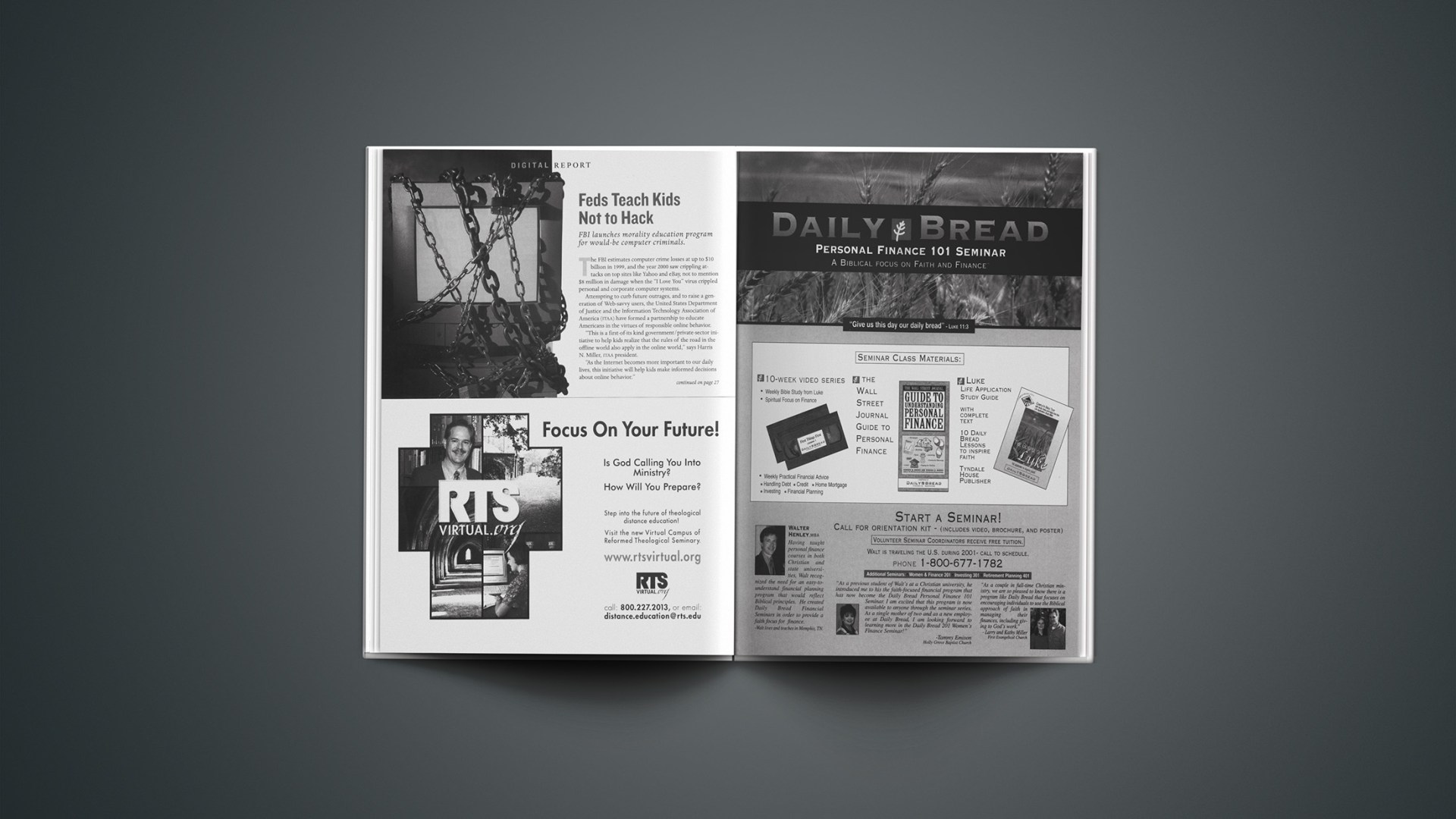Attempting to curb future outrages, and to raise a generation of Web-savvy users, the United States Department of Justice and the Information Technology Association of America (ITAA) have formed a partnership to educate Americans in the virtues of responsible online behavior.
“This is a first-of-its kind government/private-sector initiative to help kids realize that the rules of the road in the offline world also apply in the online world,” says Harris N. Miller, ITAA president.
“As the Internet becomes more important to our daily lives, this initiative will help kids make informed decisions about online behavior.”
Harlan Jones, a professor of media studies and theology at Xavier University’s Clyburn College in Cincinnati, says he believes the Justice Department’s willingness to admit that kids need a moral compass indicates the depth and scope of the department’s Internet concerns.
“I don’t believe the government would attempt to teach kids about right and wrong unless they were afraid that this was going to be an even bigger problem in the future,” Jones said.
“Lots of kids know how to use computers better than adults, so even many Christian parents might not feel equipped to instruct their children on appropriate uses of technologies.”
The Cybercitizen Partnership Awareness Campaign (cybercitizenpartners.org) seeks to engage children, young adults, and their parents and teachers on the ethical use of the Internet and the limits of acceptable online behavior.
The Awareness Campaign will focus on 9- to 12-year-olds. Using interactive games, in-school programs, and printed materials, the Cybercitizen Partnership will teach about Internet problems like hacking (illegally penetrating someone else’s computer system), vandalism, privacy, and plagiarism in terms and circumstances kids can understand.
“Lots of kids think of being online like being in an imaginary world,” says Pete Smith, executive director of the Cybercitizen Partnership. “We need them to understand that there are real consequences for themselves and others when they make decisions online.”
A poll conducted by an educational publisher, Scholastic, found that almost 50 percent of elementary and middle-school students think hacking is acceptable.
In her statement to introduce the Cybercitizenship Awareness program, Attorney General Janet Reno told her audience that “we cannot allow cyberspace to become the Wild West of the information age.”
Reno said that while the U.S. has raised a generation of computer users who are comfortable using powerful technologies, the country has failed to communicate an “understanding of the responsibilities that come with such power.”
But are Internet ethics classes going to help kids make wise choices online?
Steve Watters, an Internet research analyst for Focus on the Family, told Christianity Today, “We agree that kids need to have timeless virtues emphasized in their school curricula, but we also believe it is important to teach kids that those values transcend Internet use, that character values apply to all aspects of children’s lives.
“Most schools protect themselves from liability by adopting acceptable-use policies or by installing filters, but kids need to learn a system of portable values that can apply to any situation they might face in the future,” Watters said. “You face a different series of decisions when you are at a friend’s house and he wants to show you a porn site he has discovered than you face when someone on the soccer team wants you to help them hack into the school’s grading system.”
Watters said Focus on the Family would also like to see the Justice Department back up the idea that there are consequences for crime online with more vigorous prosecution of cybercrimes.
Copyright © 2001 Christianity Today. Click for reprint information.
Related Elsewhere
The Information Technology Association of America‘s homepage hosts technology news and links to various government online affairs.The Cybercitizen Awareness Program offers resources to parents and teachers like the ITAA’s Berkowitz Report on Children Online or a crash course in “Understanding the Internet“
The FBI also offers safety tips for kids on the Internet.
Kids who take the Cyberspacers oath pledge to ” do my best for the good of cyberspace—to follow the rules of common courtesy, mankind, and God along the Information Super-Highway.”
The Cyberspacers site is also home to D.O.T. Comics (Defenders Online Team), a cartoon series about kids who make decisions with the help of a magic computer, but Disney’s CyberNetiquette Comics are much more entertaining and instructive.
Sesame Street’s Family Tech Tips help users figure out everything from online purchases to cookies, spam, and e-mail techniques.










